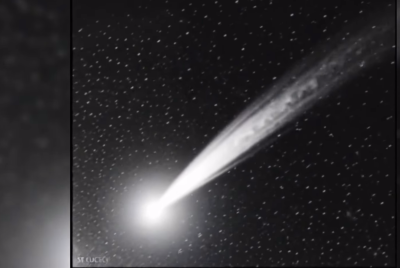Virtual reality heaven: How technology is redefining death and the afterlife
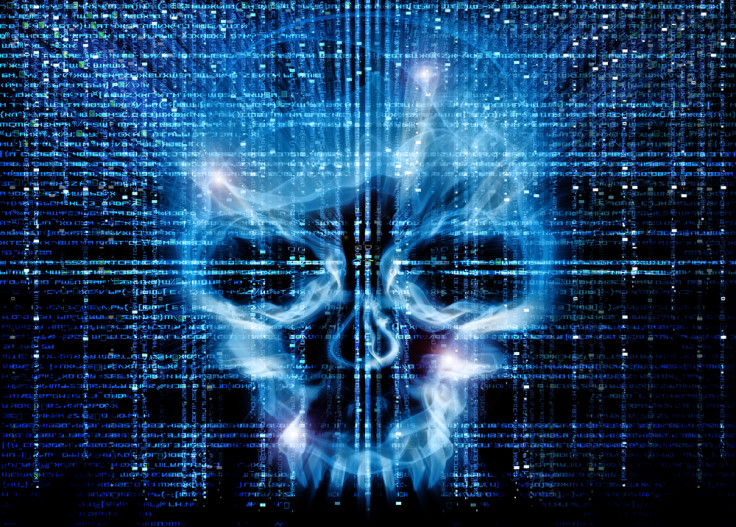
Neal VanDeRee believes he is immortal. Permanently attached to his wrist is a bracelet with a "biostasis protocol" engraved on to it in case he ever dies. It instructs paramedics to continue performing CPR after the heart has stopped beating, while cooling the body with ice.
A phone number is also included on the instructions, directing doctors to a Cryonics First Response unit tasked with completing a 17-step protocol that will allow the body to be cryogenically preserved at -120C for decades or centuries, when a future medical technology can bring VanDeRee back to life. It's not death, VanDeRee claims, it's deanimation.
VanDeRee, a minister at the Church of Perpetual Life in Hollywood, Florida, is part of a new wave of Transhumanists on a quest for everlasting life. Mankind has always tried to fill the void presented by death with superstitious beliefs of elixirs, philosopher's stones and ancient scriptures that claim to be proof that death is not the end, making the afterlife a central theme of all major religions, from the Christian concept of heaven to Buddhist reincarnation.
Through the emergence of advanced artificial intelligence, anti-ageing research, cryogenics and virtual reality, people such as VanDeRee have moved beyond blind faith and towards science and technology as a source of hope for immortality.
"I'm not afraid of death because I know I'm not going to die," the 54-year-old tells IBTimes UK. When asked if he realises this might seem like a bizarre claim to most people, he replies: "It might sound crazy, but some people believe in angels in heaven and fiery hell. For them, that's their truth. Immortality is mine.
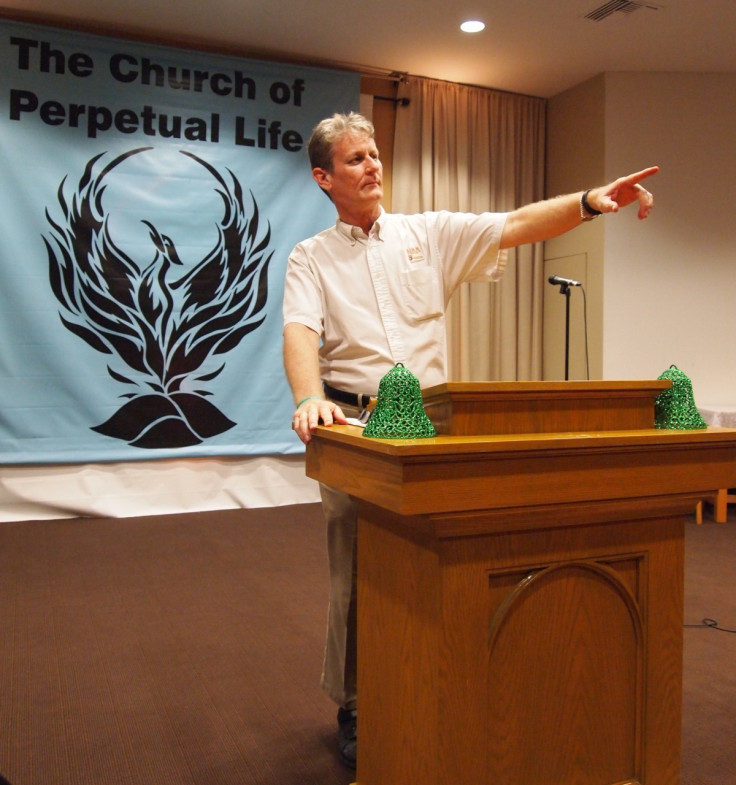
"I may not believe in hell but I do believe in heaven. I believe that the earth should be the utopic heaven that many Christians envision in the sky after they're dead. I believe that our task as a species has the choice of returning this planet to a utopic garden and we should inhabit that place forever."
We are all destined to be gods
The Church of Perpetual Life espouses all potential unlimited lifespan possibilities, including Transhumanism, the reversal of ageing, cryonics and the singularity – the concept of uploading your conscience on to a machine. Members of the church call themselves Immortalists and the technologies are the tools by which they hope to obtain eternal life.
VanDeRee argues the circle of life should not be a circle. He says: "Why can't it be an exponential arrow shooting up into infinity? Who made it a circle? I didn't make it a circle. I want no part of that." He takes dozens of vitamins and supplements each day to make sure he doesn't have to be a part of that circle, including the aptly named Life Extension pills (which come with the disclaimer that such claims have not been evaluated by the US Food and Drug Administration.)
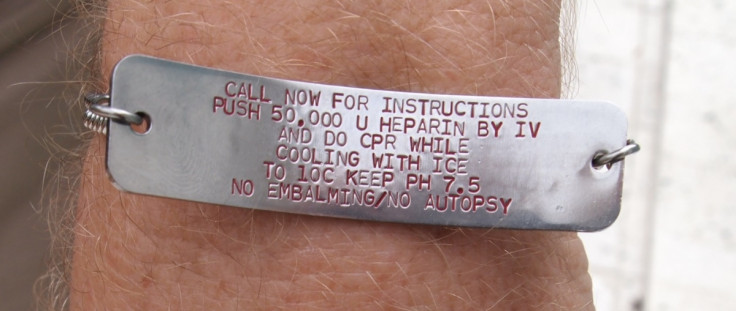
Mindfiles and digital immortality
A few hours drive up the I-95 in Melbourne, Florida, more people are attempting to use technology to overcome death. The Terasem Movement, founded by the millionaire CEO of United Therapeutics, Martine Rothblatt, sets out to take a scientific approach to beliefs and philosophical concepts, such as consciousness.
Its guiding scripture is called The Trues of Terasem, which claims to be the only religious text that updates itself if new research or information contradicts what is currently written in it. One of the core tenets of Terasem is the concept of digital immortality.
Tucked away in the basement of the Terasem Movement's Florida headquarters is a server hosting "the memories and personalities" of hundreds of its members. The so-called mindfiles include personality profiles, biographical information and memories in the form of photos and other media.
For now it is more like a digital scrapbook but it is hoped that advances in artificial intelligence could one day turn these mindfiles into what can be considered human consciousness. Indeed, one of its mantras is "software people are people too".
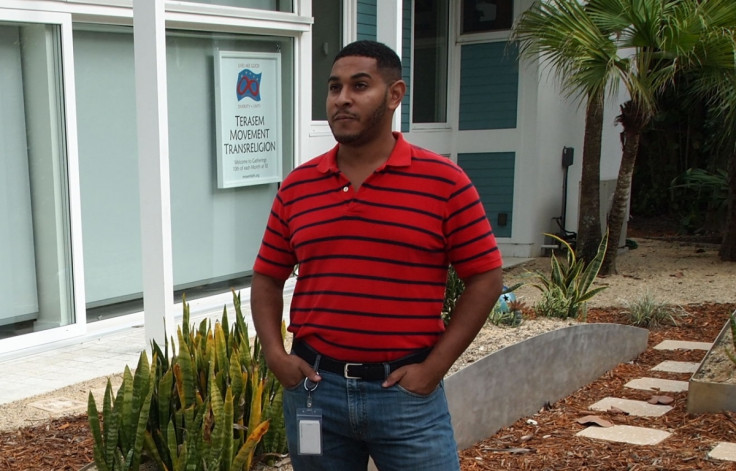
Outside, on the patio leading out to the beach, satellite dishes are positioned pointing towards the sky, transmitting the mindfiles to any potential alien life forms.
Gabriel Rothblatt, a pastor at Terasem and the son of the Terasem Movement founder, says: "The end goal of Terasem is similar to other religions, these ideas of joyful immortality in the afterlife. But for us it's not simply a spiritual concept, it's a mechanical challenge. Technology could one day make this a reality through digital backups – the idea of transferring a person's consciousness on to a hardrive, which could then be placed into quasi-utopian conditions. Heaven could be a virtual reality world hosted on a computer server somewhere."
Massive-scale virtual reality worlds, the likes of which have remained rooted in science-fiction films, would be needed if such a concept was ever to work. It is something that London-based startup Improbable claims is now technologically possible due to the platform it has developed.
"We are laying the foundations of the technology that would build worlds like the Matrix," Herman Narula, co-founder and CEO of Improbable, told IBTimes UK in November. The technology harnesses the power of hundreds or even thousands of cloud computing servers to create detailed, dynamic worlds on an enormous scale. For Terasem, it would mean that heaven isn't in the clouds, heaven is the cloud.
Quantum archaeology and the digital Rapture
Both the Church of Perpetual Life and the Terasem Movement describe themselves as Transreligion, meaning they are not mutually exclusive to other religions. Many of their members are also practising Christians and Jews. Some critics have called Terasem a cult, justified by the fact that there are no peer-reviewed scientific papers that suggest downloading your consciousness on to a computer is at all possible. Yet these ideas seem not so extreme when compared to the pseudo science that some other Transhumanist belief systems are based on.
One of these is quantum archaeology - the concept of technological resurrection through something referred to by believers as Akashic physics. It entails sketchy ideas loosely based on quantum physics, and the philosophy of hard determinism. It involves ultra-powerful quantum computers that could one day map the past and track back through events through the laws of determinism to resurrect every person who has ever existed throughout history.
While Church of Perpetual Life minister VanDeRee doesn't preach quantum archaeology, it's these sorts of ideas that he wants to explore in his technological quest towards immortality. When asked if he believes in God, VanDeRee replies: "I believe we should all be gods. I believe once we obtain immortality for our species that we will be gods because we'll be able to be immortal.
"We will have unlimited lifespans and the sorts of technologies that will look like magic to people living today. We are destined to be gods."
© Copyright IBTimes 2025. All rights reserved.




